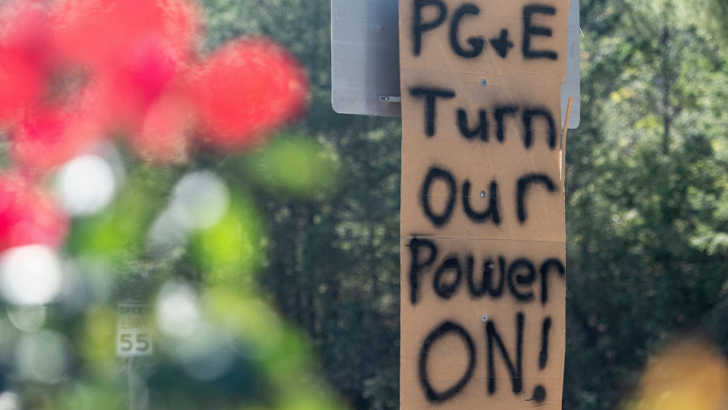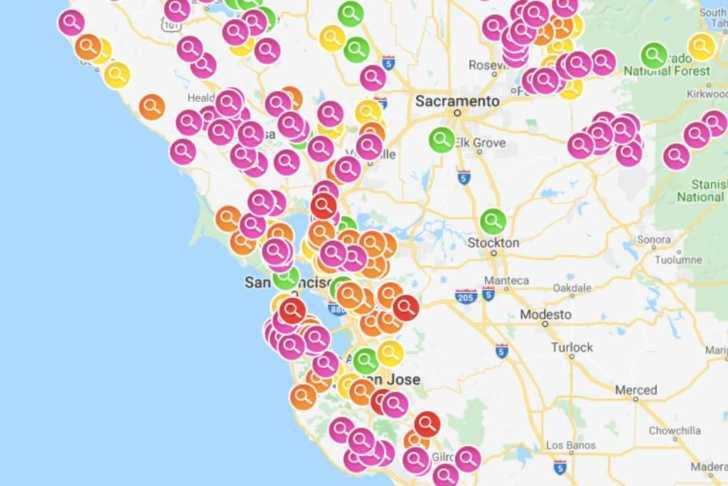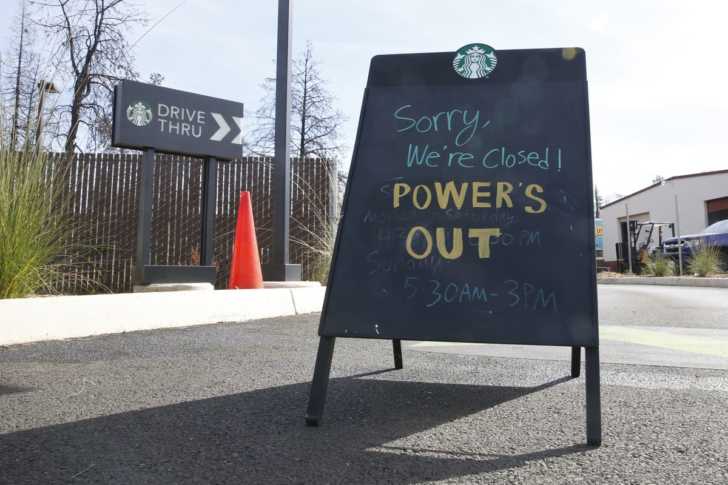Public Safety Blackouts Causing Food Spoilage. PG&E Makes No Apologies.
See how to prepare for future outages as well.

If you live in the Bay area, or have friends and family who reside there, you’ve undoubtedly heard about the Public Safety Power Shutoffs implemented by Pacific Gas & Electric. The planned blackouts have been happening over the last several weeks, mainly in high fire-threat areas. This may seem like an overreaction, but you might remember the devastating California Camp Fire last November. It was ignited by a broken PG&E transmission line. The company decided to cut off power to millions of Californians in an attempt to prevent more catastrophes.
While this may seem like a solid plan on paper, the power outages have caused a ripple effect of other problems, including but not limited to spoiled food. These outages last for days at a time, thus ruining items stored in the fridge or freezer. A lot of people in the affected areas simply restock when the power comes back on, but for many living paycheck to paycheck, or on disability, this is yet another devastating blow to an already tense situation. Especially when the power outages are back to back. Some people have had up to five blackouts in the last month alone. That kind of money really adds up when you’re replacing food every few days.

When asked about the financial strain each power outage put on families and citizens of California, PG&E CEO, Bill Johnson had this to say:
“These events can be hard on people, really hard on people, particularly people who have struggles anyways and there are community-based things you can do, food banks, these kind of things. But for us, you know the main thing is we didn’t cause any fires, we didn’t, for these people we didn’t burn down any houses.”
His statement was put on social media, which caused a frenzy of angry responses.
“‘At least we didn’t burn your house down’ is not a good look in an argument.”
“This is what arrogance looks like.”
“Your CEO should be fired for this tone-deaf statement.”
“He has a base salary of $2.5 million and this answers sounds exactly like it. I can’t stand this company.”
This isn’t the first round of power outages by a long shot, but it might be the most controversial. PG&E has long been scrutinized for its lack of preventative maintenance. According to Mark Toney, the executive director of the non-profit advocacy group, The Utility Reform Network, “This is a crisis of their own making – that’s why people are so upset. If PG&E had spent the billions of dollars they’ve been receiving on trimming trees and fixing poles and wires properly, they never would have had to revert to these massive shutoffs to prevent fires.”
How to Prepare For A Power Outage

We don’t fully realize how much we depend on electricity until it’s taken away. Not only do appliances like fridges and microwaves become useless, but things like ATMs and even gas stations cease to function properly. Then there’s the little, day to day things we take for granted like automatic garage doors and elevators with key card access. Here’s a list of things you should plan for in case of a power outage:
- Create a safety plan. It’s easy to fall into chaos during these trying times, but if you go into the situation with a plan, you can mitigate a lot of stress. Make sure to communicate the plan to family members, including first steps and meet-up points.
- Prepare an emergency supply kit. Include water, nonperishable food items, flashlights, and batteries.
- Stock up on external batteries for phones and other devices so you can have them during the outage.
- Keep cash on hand and have a full tank of gas. ATMs will likely be down, and gas stations may not be able to operate during an outage.
- Talk with your building manager at the office or in your apartment complex if you need to use an elevator to get to where you need to go. See what their emergency plan is so you can better prepare.
Lastly, make sure to check on your neighbors during outages and make sure everyone in your community is safe!
SKM: below-content placeholderWhizzco for DOT

